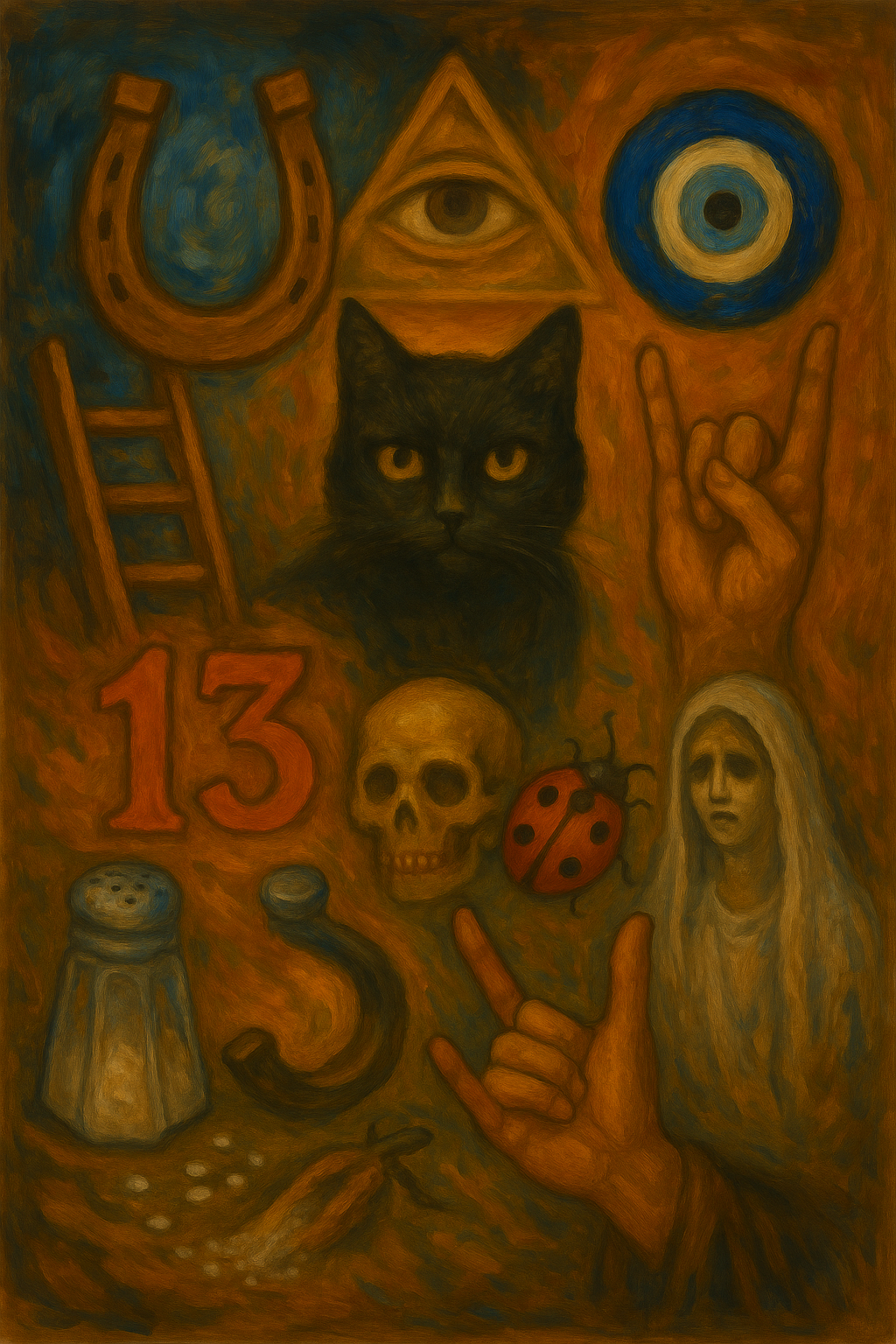Introduction to Superstitions
Superstitions are traditional beliefs or practices resulting from ignorance, fear of the unknown, or trust in magic. These beliefs, deeply rooted in various cultures, reflect the diversity and complexity of human societies. Understanding superstitions offers insights into cultural norms and shared human experiences. This comprehensive exploration identifies what makes superstitions unique across different cultures and how they shape behavior and thought.
Understanding Superstitions
What is a superstition?
A superstition is a belief or practice resulting from the irrational fear of the unknown or trust in magic or chance. These beliefs often manifest when people associate certain actions, events, or objects with specific outcomes.
Why do people believe in superstitions?
People cling to superstitions due to psychological reasons such as fear, uncertainty, and the need for control. Superstitions provide comfort and a sense of predictability in an unpredictable world.
The Role of Superstitions in Different Cultures
Distinctive Cultural Superstitions
In Japan, the number four is avoided due to its phonetic similarity to the word “death.” Italians often consider numbers ending in “13” unlucky, while in Mexico, “La Llorona” is feared as a supernatural omen. These superstitions reveal how geography and culture shape belief systems.
Influence of Myths and Folklore
Mythology often deeply influences superstitions within cultures. For example, Norse mythology impacts Scandinavian superstitions, while Aztec mythology still echoes in some Mexican superstitions. These shared stories create cohesion in cultural beliefs across time and geography.
Global Superstitions and Their Meanings
Common Superstitions and Themes
Globally, superstitions about luck, protection, and prosperity dominate. For instance, knocking on wood and throwing salt over one’s shoulder are universal gestures for warding off bad luck. Analyzing these beliefs highlights the shared human concerns about fate and fortune.
Number-Related Beliefs
Numbers play a significant role in superstitions; for instance, “13” is commonly avoided in Western cultures, while “8” is considered lucky in China. These number-related beliefs illustrate diverse interpretations of numerology across cultures.
Superstitions and Historical Traditions
Evolution Over Time
Superstitions evolve, bridging past beliefs with modern practices. Historical superstitions like alchemy have influenced contemporary science, transforming from mystical arts to chemical science. Understanding these transitions offers insights into human adaptability and curiosity.
The Psychological Aspect of Superstitions
Social Belief Systems
Superstitions persist due to their role in societal belief systems. They often provide safety and assurance in uncertain environments, allowing communities to bond over common beliefs and practices.
Scientific Studies on Superstitions
According to research by the American Psychological Association, superstitions provide psychological benefits by reducing anxiety and stress. These beliefs serve as coping mechanisms, particularly in high-stakes situations.
The Intersection of Superstitions and Social Behavior
Influence on Daily Life
Superstitions significantly influence everyday decisions, from choosing lottery numbers to structuring daily routines around auspicious timings. Such cases illustrate how deeply ingrained these beliefs are in societal behavior.
Case Studies and Societal Impact
Case studies, such as the influence of superstitions on sports players’ performance routines, demonstrate their substantial impact on various aspects of life. These examples underline the profound psychological effects superstitions have on individuals and communities.
Unique Superstitions from Around the World
Regional Superstitions
Superstitions vary globally; African cultures may interpret animals as symbols of power or protection, while European traditions often involve religious symbols. Analyzing these differences highlights cultural values embedded in superstitions.
Modern Society and Superstitions
Evolution in Contemporary Contexts
Superstitions adapt to contemporary society with evolving technologies and changing lifestyles. Online platforms have seen new superstitions arise, such as avoiding digital interactions on specific “unlucky” days.
Conclusion: The Legacy of Superstitions
Superstitions offer a glimpse into the cultural fabric of societies, highlighting both diversity and shared human experiences. By exploring these beliefs, we embrace cultural diversity and gain insight into how shared experiences shape communal identities.
FAQs on Superstitions
1. What are some common superstitions around the world?
Common superstitions include knocking on wood for luck and avoiding the number 13.
2. How do superstitions reflect cultural beliefs?
Superstitions mirror cultural values, norms, and historical traditions, offering insight into societal beliefs.
3. What unique superstitions exist in different societies?
Unique superstitions, such as Japan’s avoidance of the number four, reflect specific cultural contexts.
4. How have superstitions evolved over time?
Superstitions adapt with society, evolving from ancient traditions to modern interpretations.
5. Why do people still believe in superstitions today?
Superstitions provide psychological relief and a sense of control over uncertainty and the unknown.
